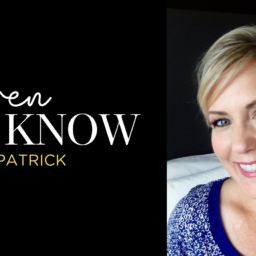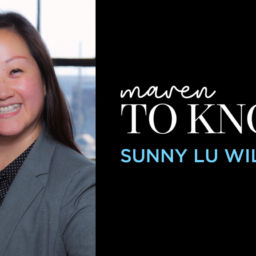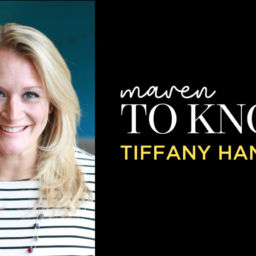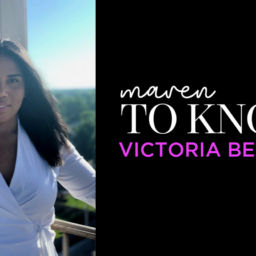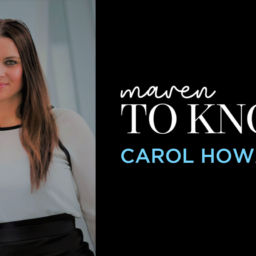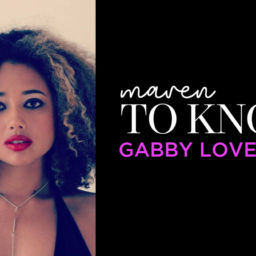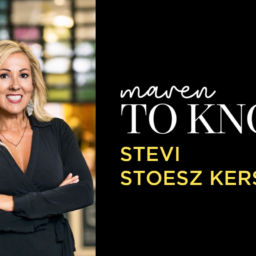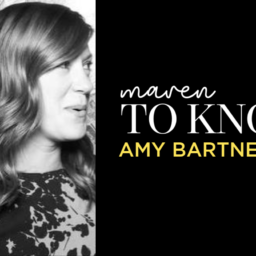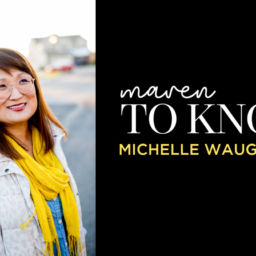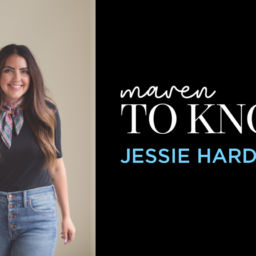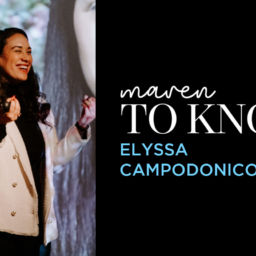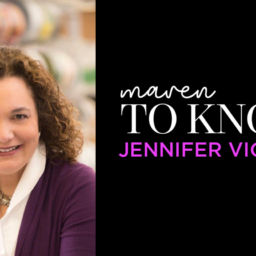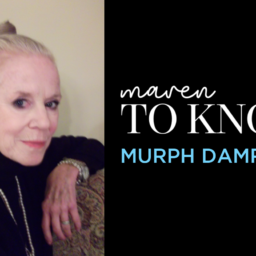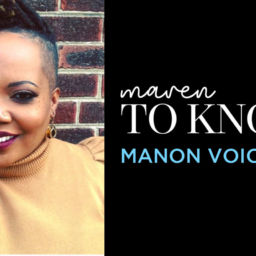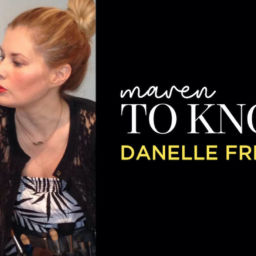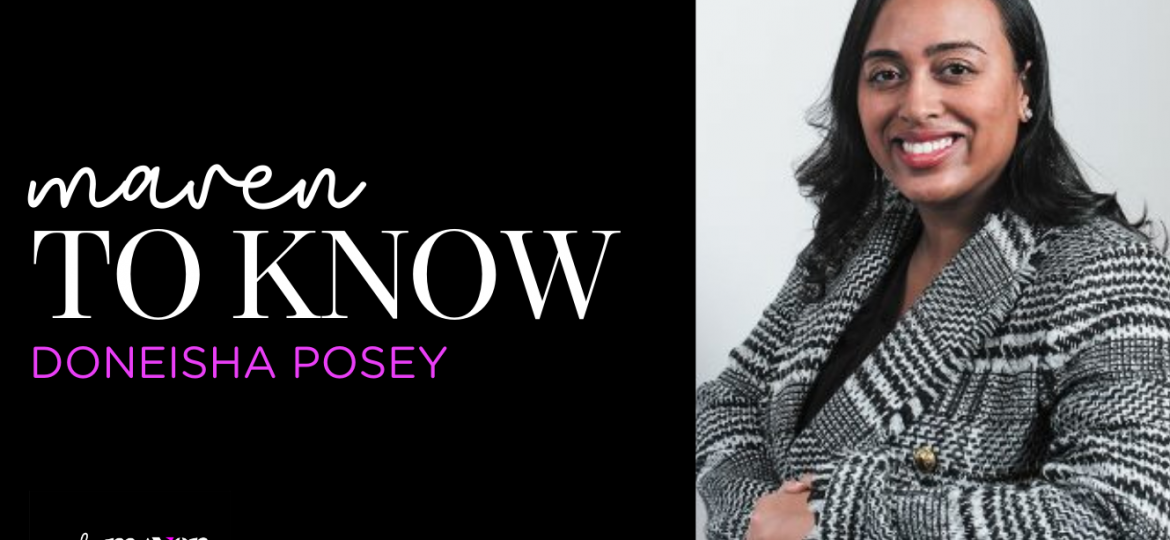
Maven to Know is weekly series by Indy Maven highlighting a member of our community. Want to be featured? Join us!
Doneisha Posey is an Indianapolis-based educator, attorney, and diversity professional. After finishing law school in 2014, Posey worked in various law positions, such as the deputy director and general counsel for the Indiana Civil Rights Commission. A common theme in her work is civil rights and educating future generations to bridge gaps in housing and equal pay.
“In that role, seeing how folks have been discriminated against in housing, education, and employment, really shone a light for me on how inequitable many of our systems are in so many different avenues,” Posey said. “Being able to really look at how policies and procedures helped to create those systemic inequities that a lot of people are talking about now, I really loved doing that work at the Civil Rights Commission.”
After a few years of working in the field, Posey returned to the classroom to shape the minds of the next generation of lawyers and difference makers. Currently, she’s an adjunct professor of law at Indiana University Robert H. McKinney School of Law and vice president of diversity, equity, and belonging at Ivy Tech Community College.
“Whether I’m at Ivy Tech or at the law school, there’s so much to learn as it relates to race, the history of our country, and eradicating those barriers,” Posey says. “I love being at both the law school and community college because I’m able to reach lots of different people in different ways. Really, my main focus and all of my work is focused on being aware of the inequities in our world.”
We chatted with Posey to find out what it’s like working in civil rights law, how her students inspire and motivate her, and what her go-to cocktail is after a long week.
Maven superpower: Convening women who wouldn’t necessarily know they needed to know each other. I have friends in so many different industries, so I typically know who to bring together.
What sparked your interest in pursuing civil rights law, specifically?
As a middle child, I grew up always thinking about what was fair and what wasn’t fair. So, going to law school, I really found that I wanted to go into public service and work for the people, so I did immigration law for a few years. Then, I went to the state government, where I worked at the Indiana Civil Rights Commission as an administrative law judge and then as the deputy director and general counsel. In that role, seeing how folks have been discriminated against, really shone a light for me on how inequitable many of our systems are in so many different avenues.
Describe some qualities of a good lawyer. What do you hope to instill in your students?
I think in order to be a good lawyer, the biggest quality is being curious. The law might look black and white on paper, but really, the law is very gray. If you have a curious mind, you’ll be able to see one law in five or six different ways. If you’re able to do that, then you’re going to be 10 steps ahead of the next person because you’ve already been able to analyze the law and from many different perspectives. That makes a great lawyer and that makes a great judge. I love when my students are super curious and take the initiative in doing additional reading around subjects they’re interested in.
What are some foundational career characteristics that have carried you along so far?
In order to do this work in civil rights and anti-discrimination, you truly have to care about the individual because every case is completely different. There is no one formula that you use for any case that comes across your desk. Every case has to be looked at differently from a different lens. To be a good civil rights attorney, you really have to genuinely care about people. Also, you have to be principled. Being principled really matters in this work as well because the law changes. Legislators can go to Congress and change the law tomorrow.
In your role as a professor, you act as a mentor to your students. Who’s a prominent mentor in your life?
Florence Roisman. She is a law professor at IU McKinney School of Law. She’s been there for many, many years. She took me under her wing when I was in law school.
Prior to law school, I didn’t know much about housing discrimination or about institutional racism, or anything like that. I really learned everything that I know from her. And honestly, if it wasn’t for her, I wouldn’t have been teaching in the first place. She recommended me to the law school to teach that course, and that was a course that she taught for many, many years. Handing it to me was just a magical moment. She trusted me enough to take over a course that she had been teaching for many, many years.
RELATED: MAVEN TO KNOW: JILL ROBISCH
If you could have dinner with anyone, dead or alive, who would it be and why?
I would have dinner with Shirley Chisholm, the first Black woman elected to U.S. Congress and first Black candidate for a major party’s nomination for President of the United States. She is the epitome of going after whatever you want and using your voice to make a difference. My favorite quote of hers is, “You don’t make progress by standing on the sidelines, whimpering and complaining. You make progress by implementing ideas.”
How do you approach problem-solving?
Typically I like to solve problems collaboratively. Using the strengths of a diverse group to brainstorm and continuously seek feedback to address the issue and implement a solution.
You mentioned earlier that you’re especially passionate about bridging the gaps in housing and equal pay. What can we do to help bridge those gaps?
The first step is awareness. Learning the history of systemic inequalities will give you a good foundation for attempting to bridge gaps today. Also, follow @WEbrunchIndy on Instagram to be in the community with other Indy women who want to work together to achieve equity for all women in Indy.
What’s the biggest misconception about civil rights attorneys?
I think the biggest misconception is that this must be glamorous work. Civil rights is a hot topic and on all news outlets. But this work is hard — complex, emotional, and a lot of times, thankless. But working to achieve equity and eradicating discrimination is the most fulfilling work I’ve ever done and that’s thanks enough.
Tell us about a book you’ve read recently that’s inspired you.
I am in the middle of reading a book called Caste by Isabel Wilkerson. The book is really about seeing the United States being shaped by a hidden caste system. You think about the caste system of India, where you have the untouchables and different groups, different caste systems. Her argument is we actually have the same here in the United States, it’s just hidden. It’s also a rigid hierarchy, looking at race, class, and other factors. It’s how that plays out in our world. It’s really interesting about the United States as a caste system because it’s not something that I have thought about before.
Name three things you can’t leave home without.
My phone, Chanel Hydrating Lip Balm, and a plan!
What’s your go-to cocktail after a long week?
I’m pretty simple. I like tequila with ginger ale.
Want to be featured as a Maven to Know? Sign up for our Membership Program—we’d love to have you! See all the Maven to Know features we’ve shared so far.
All of our content—including this article—is completely free. However, we’d love if you would please consider supporting our journalism with an Indy Maven membership.







